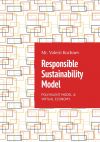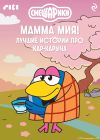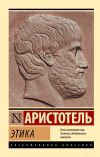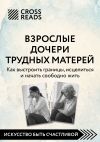Текст книги "Английский по-новому"

Автор книги: Татьяна Афонина
Жанр: Иностранные языки, Наука и Образование
сообщить о неприемлемом содержимом
Текущая страница: 6 (всего у книги 29 страниц) [доступный отрывок для чтения: 7 страниц]
want you to work for this company?(he) 12. Do you want his shoes (to be) polished? (he) 13. Don’t I want you to respect him? (she) 14. Do we want them to pay for his studies? (he)
48.
Составьте по образцу предложения с Complex Object, используя глагол want и следующие словосочетания.
to say something (I, he) → I want him to say something.
1. to introduce him to them (he, we) 2. to work for this firm (we, they) 3. to respect him (I, you) 4. to take care of these children (she, he) 5. to pay for my studies (my mother, my uncle) 6. to get a good education (my mother, I) 7. to be ready to help my younger brother (my father, I) 8. to spend a big sum of money on him (he, she) 9. not to play jokes on his younger brother (she, he) 10. to discuss important questions with the boss (they, we) 11. to be responsible (she, her child) 12. to trust him with our secrets (they, we) 13. to rely on this colleague (he, she)
49.
Переведите на английский язык. Чем, по-вашему, отличаются предложения, выделенные курсивом?
1. Он хочет, чтобы его дочь была ответственной. 2. Она хочет быть юристом. 3. Они хотят, чтобы его сын стал (был) юристом. 4. Мы хотим, чтобы наши ученики были трудолюбивыми. 5. Родители хотят, чтобы учителя были терпеливыми. 6. Вы хотите, чтобы он стал (был) врачом? 7. Я не хочу, чтобы мои дети были ленивыми. 8. Он не хочет, чтобы вы нервничали (волновались). 9. Она не хочет, чтобы ее дочь боялась темноты. (to be afraid of darkness) 10. Я хочу обсудить этот вопрос с начальником. 11. Я хочу, чтобы вы обсудили этот вопрос с начальником.12. Он хочет ей помочь. 13. Он хочет попытаться помочь ей. 14. Он хочет, чтобы вы ей помогли. 15. Он хочет, чтобы вы попытались ей помочь. 16. Она хочет оказать ему любезность. 17. Она хочет, чтобы мы оказали ему любезность. 18. Вы хотите, чтобы я ей помог? 19. Он хочет доверять им. 20. Он хочет, чтобы она доверяла им? 21. Они хотят обсудить это с начальником? 22. Они хотят, чтобы он обсудил это с начальником? 23. Он не хочет, чтобы они подшучивали над его братом. 24. Я не хочу, чтобы Анна ему помогала. 25. Они не хотят, чтобы вы позвонили Джону. 26. Она хочет помогать маме вести домашнее хозяйство. 27. Мы хотим, чтобы ты помогала моей маме вести домашнее хозяйство.28. Мы не хотим тратить на это свои деньги. 29. Она не хочет, чтобы ты тратил на это деньги. 30. Я хочу проследить за этими документами. 31. Я хочу, чтобы за этими документами проследили. 32. Он не хочет подписывать договор. 33. Он не хочет, чтобы договор подписали. 34. Она не хочет обсуждать этот вопрос с ними. 35. Она не хочет, чтобы вопрос обсудили. 36. Мы хотим, чтобы информацию записали. 37. Они хотят позвонить Джону. 38. Вы хотите, чтобы этот документ был подписан? 39. Он не хочет забирать документы (take away). 40. Он хочет, чтобы документы забрали? 41. Она хочет, чтобы подарок купили? 42. Он не хочет покупать ей подарок. 43. Они хотят, чтобы работа была сделана? 44. Они хотят сделать эту работу? 45. Я не хочу, чтобы этот вопрос обсуждали. 46. Мы не хотим, чтобы эти деньги потратили. 47. Они не хотят, чтобы деньги доверили ему. 48. Она не хочет, чтобы над ее ребенком подшучивали.
50.
Ответьте на вопросы по образцу.
Why do you want to buy a present for him? (your best friend; have a birthday). → I want to buy a present for him because he is my best friend and he has a birthday.
1. Who wants them to do this work? (their manager) 2. Why do you want me to sign this document? (important) 3. Does our teacher want us to do this exercise in writing? (Yes, to learn the words and rules) 4. Why doesn’t he want her to write in ink in this book? (Tom’s new book) 5. Why do they want you to say a few words about Tom? (friends, have much in common) 6. He doesn’t want us to trust that man, does he? (No, irresponsible) 7. Don’t you want him to visit your granny? (Yes, live not far from each other) 8. Why does the teacher want her students to open their books at page 7? (to do an exercise on that page) 9. Do you want me to read this text? (Yes, interesting) 10. Why does he want her to help him? (Can’t do it himself)
Сложное дополнение с Let (The Complex Object with Let)

Let me be your friend. Позвольте (давайте) я буду вашим другом.
Don’t let me be sad. Не позволяйте мне грустить (быть грустным).
Let him (her, them) go away. Пусть он (она, они) уйдет (уйдут).
Don’t him (her, them) go away. Не позволяйте ему (ей, им) уйти.
Let us have some coffee. Давайте попьем кофе.
Let us not have any coffee. Давайте не будем пить кофе.
Let the text be translated. Пусть текст переведут.
Don’t let the text be translated. Пусть текст не переводят.
51.
Переведите на русский язык. Выполните обратный перевод.
1. Let us begin our lesson. 2. Let us be patient. 3. Let us not be so nervous. 4. Let me help you. 5. Let me be your friend. 6. Let him answer your question. 7. Don’t let him be lazy. 8. Don’t let him spend this money. 9. Let her follow her mother’s advice. 10. Don’t let them write in the margin. 11. Let us open our textbooks at page 17. 12. Let me do you a favour. 13. Don’t let your child play jokes on other children. 14. Let them have some coffee now. 15. Don’t let them write in ink in their textbooks. 16. Let it be done. 17. Don’t let this advice be followed. 18. Don’t let me down. 19. Let this text be translated. 20. Let your books be opened. 21. Let the question be discussed with the boss.
52.
Поставьте местоимения и существительные в соответствующей форме. Обратите внимание на то, что форма существительного никак не изменяется.
Let (I) help you. → Let me help you.
Let (your friend) follow her advice. → Let your friend follow your advice.
1. Let (our teacher) come into the classroom. 2. Let (he) come to the blackboard. 3. Don’t let (she) write on the blackboard. 4. Let (I) ask you a question. 5. Let (we) answer your question. 6. Let (they) follow the rule. 7. Let (Tom) open the textbook on page 20. 8. Let (we) be attentive. 9. Don’t let (she) look at this exercise. 10. Don’t let (the documents) be taken home. 11. Don’t let (this money) be spent on restaurants. 12. Let (it) be done. 13. Let (he) do the exercise on page 5. 14. Don’t let (they) turn the page. 15. Let (we) look at the bottom of the page.
53.
Трансформируйте предложения по образцу.
Let us (let’s) have some tea. → Let us (let’s) not have (any) tea.
Давайте вышьем чаю. → Давайте не будем пить чай.
Let us spend money on this. Let us discuss this question with him. Let us rely on them. Let us introduce him. Let us take care of these documents. Let us work for this firm. Let us play a joke on him. Let us do him a favour. Let us be careful. Let us sign this document.
54.
Переведите на английский язык.
1. Давайте подпишем этот документ. 2. Давайте не будем обсуждать этот вопрос. 3. Давайте не будем разыгрывать его. 4. Давайте окажем ему любезность. 5. Давайте запишем это. 6. Давайте не будем покупать ему подарок. 7. Давайте навестим его. 8. Давайте не будем делать это упражнение письменно. Давайте сделаем его устно. 9. Давайте не будем нервничать. 10. Давайте не будем представлять их друг другу. 11. Давайте переведем это предложение с английского языка на русский.
55.
Трансформируйте предложения по образцу.
Let him (her, them) take it. → Don’t let him (her, them) take it.
Пусть он (она, они) возьмет (возьмут) это. → Пусть он (она, они) это не берет (берут). / (Не разрешайте) ему (ей, им) это брать.
1. Let her drink some cofee. 2. Let him call John. 3. Let them sign this document. 4. Let him do her a favour. 5. Let them introduce him. 6. Let him talk with them. 7. Let her take care of it. 8. Let them buy a present for her.
56.
Переведите на английский язык.
1. Пусть она скажет несколько слов о нем. 2. Пусть он представит их. 3. Пусть они не оказывают ему любезности. 4. Пусть он будет очень внимателен и осторожен. 5. Пусть она поработает на этой фирме 2 недели. 6. Пусть он не говорит с ними о музыке. 7. Пусть они обсудят этот вопрос с начальником. 8. Пусть он не покупает ей подарок. 9. Пусть она позаботится об этом. 10. Пусть он не платит за их обучение. 11. Пусть она поможет ему приглядеть за детьми. 12. Пусть они будут готовы ответить на эти вопросы. 13. Пусть он не тратит наши деньги на это. 14. Пусть она не обсуждает этот вопрос с ним. 15. Пусть они не доверяют ему. 16. Пусть он не полагается на ее слова. 17. Пусть они не едут на машине. Пусть идут пешком. 18. Пусть она поговорит с ним о музыке. Он любит музыку.
57.
Переведите на русский язык.
Let me do it. Давайте я сделаю это. Позвольте я сделаю это. (Дайте я сделаю это.)
Let me put it down.
Let me say a few words about him.
Let me introduce her.
Let me buy a present for her.
Переведите на английский язык.
1. Давайте я вам помогу. 2. Позвольте я это запишу. 3. Разрешите я его вам представлю. 4. Позвольте мне позаботиться об этих людях. 5. Давайте я куплю ей подарок. 6. Дайте я выпью чаю. 7. Давайте я позвоню ему. 8. Давайте я поговорю с ним.
58.
Ответьте на вопросы, используя подсказку в скобках.
What can we do to this text? (translate) – Let us translate it.
1. Whom can we visit? (Ann)
2. What do you want to do now? (have some coffee)
3. Whom does he want to invite to his place? (His friend Nick)
4. What do you want them to do for their homework? (do this exercise in writing)
5. Where do you want us to go? (room № 7)
6. What must he do? (hand in his copy-book)
7. What advice do you want to give him? (be attentive and careful)
8. How can you help me? (think it over)
9. Do we need anything else? (buy some copy-books and pens)
10. What present can we buy for her? (a ring)
Инфинитив (The Infinitive)
Оборот «Be + прилагательное + инфинитив»

59.
Найдите в словаре переводи транскрипцию следующих слов. Выучите эти слова.
Unpleasant, nice, difficult, hard, irresponsible, beautiful, lazy, useful, wise, unwise, easy, simple, especially, necessary, funny, topic, sum, money, shopping, sense of humour, coffee maker, believe.
60.
Переведите на русский язык.
1. It is pleasant to deal with him. He is so responsible and patient. 2. It is difficult to deal with her. She is lazy and irresponsible. 3. It is nice to look at her. She is so beautiful. 4. It is difficult to teach him. He is so lazy. 5. It is not easy to translate this sentence. It is too long. 6. Sometimes it is difficult to keep your handwriting straight. Especially when you are in a hurry. 7. It is useful to follow his advice. His advice always comes in handy. 8. It is not good to play jokes on little children. 9. It is not good to spend a lot of money on restaurants. 10. It is wise to discuss this question with an experienced colleague.
61.
Вставьте соответствующие формы глаголов.
1. It is difficult (discuss) a question if you know nothing about the topic. 2. It is easy (spend) a big sum of money if you are fond of shopping. 3. It is nice (play) jokes on people if the jokes are funny and the people have a sense of humour. 4. It is pleasant (work) with a person, who is responsible and patient. 5. It is useful (follow) his advice because his advice always comes in handy. 6. It is interesting (talk) with him because he is well-educated and knows a lot. 7. It is not difficult (do) this exercise because it is rather simple. 8. It is not difficult (make) coffee if you have a coffee maker at home. 9. It isn’t nice (work) with him because he is lazy. 10. It is not easy (teach) children, especially if they don’t want to study.
62.
Переведите на английский язык.
1. С ним неприятно иметь дело, потому что он очень ленивый. 2. Со Смирновым приятно работать, потому что он очень трудолюбивый. 3. Деньги легко потратить, но тяжело заработать (earn). 4. Легко давать советы, но иногда им трудно следовать. 5. Приятно говорить с человеком, который тебя понимает. 6. Непросто обсуждать вопрос с человеком, если вы имеете разные взгляды на эту проблему. 7. Трудно поверить, что человек может хорошо работать, если знаешь, что он любит поесть и поспать. 8. Трудно поверить, что он не хочет платить за ее учебу. Он щедрый человек. 9. Не разумно доверять человеку свои секреты, если знаешь, что не можешь положиться на него. 10. Необходимо (necessary) часто играть на пианино, если вы хотите играть хорошо.
63.
Ответьте на вопросы, используя в качестве подсказки упражнения № 60–62.
1. Why is it pleasant to work with Smirnov? 2. How often is it necessary to play the piano, if you want to play well? 3. Why is it unpleasant to deal with him? 4. Why is it difficult to believe that he doesn’t want to pay for her studies? 5. Why is it difficult to earn money and easy to spend it? 6. Is it nice to look at her? 7. Why is it wise to discuss this question with an experienced colleague? 8. Why is it useful to follow his advice? 9. Is it interesting to talk with him? 10. Is it difficult to teach these children?
Оборот «Be + прилагательное + For Smb + инфинитив»

It is important for him to be attentive. Ему важно быть внимательным.
It is important for us not to be late. Нам важно не опоздать.
It is pleasant for me to talk to you. Мне приятно разговаривать с тобой.
It is important for her not to sign this document. Ей важно не подписывать этот документ. (Важно, чтобы она не подписывала этот документ.)
It is time for us to have dinner. Нам пора обедать.
It’s high time for us to talk. Нам давно пора поговорить.
Примечание: С выражением high time (time) употребляется инфинитив с предлогом for.
64.
Трансформируйте предложения по образцу.
It is interesting to study English. (I) → It is interesting for me to study English.
1. It is pleasant to deal with him. (she) 2. It is difficult to deal with her. (he) 3. It is necessary to look after this child. (we) 4. It is difficult to teach him. (I) 5. It is not easy to translate this sentence. (they) 6. Sometimes it is difficult to keep my handwriting straight. (I) 7. It is useful to follow his advice. (we) 8. It is not interesting to talk about music. (she) 9. It is not necessary to spend a lot of money on books. (he) 10. It is very useful to discuss this question with an experienced colleague. (they)
65.
Переведите на английский язык.
1. Вам необходимо проследить за этими документами. 2. Тебе пора представить ее нам. 3. Мне трудно обсуждать с вами эту проблему. 4. Ему важно быть внимательным и осторожным. 5. Вам необходимо выучить английский язык. 6. Ей необходимо поговорить с ним. 7. Ему важно подготовиться (быть готовым) к переговорам. (talks) 8. Нам необходимо попытаться помочь ему. 9. Важно, чтобы преподаватель был терпеливым и опытным. 10. Важно, чтобы дети не были ленивыми. 11. Ему необходимо хорошо понимать этот вопрос.
66.
Ответьте на вопросы, используя подсказки в скобках.
1. Whom is it necessary to take care of these documents for? (head of our department) 2. Why is it difficult for us to discuss this problem? (different views) 3. Whom is it necessary for her to talk with? (our manager) 4. Why is it important for him to be attentive? (not to get bad marks) 5. Why is it necessary for him to know the question well? (to be ready for the talks) 6. Why is it necessary to keep your handwriting straight, when you write a test? (the teacher can’t read your paper) 7. Why is it difficult for you to teach this pupil? (lazy) 8. Whom is it useful to discuss this question with? (experienced colleague) 9. Whom is it difficult to work with? (irresponsible colleague) 10. Whom is it necessary to look after? (little children)
Артикль (The Article)
Представление «нового»
Если существительному предшествует прилагательное, артикль ставится перед прилагательным, но относится к существительному.
This is a book. It is an (a very) interesting book.
Это книга. Это (очень) интересная книга.
Существительные множественного числа (tables) и существительные неисчисляемые (water) не употребляются с неопределенным артиклем a / an. В данном случае они употребляются без артикля.
These are children. They are (very) small children.
Это дети. Они (очень) маленькие дети.
This is water. It is (very) cold water.
Это вода. Это (очень) холодная вода.
Если после прилагательного нет существительного, артикль не употребляется!
This is a book. It is – (very) interesting —.
Это книга. Она (очень) интересная.
These are children. They – are (very) small —.
Это дети. Они (очень) маленькие.
This is water. It is – (very) cold —.
Это вода. Она (очень) холодная.
67.
Найдите в словаре переводи транскрипцию следующих слов. Выучите эти слова.
Handsome, stingy, plain, short, slender, slim, lazy, inexperienced, unimportant, impatient, weather, tea, strong, coffee, black, beer, bitter, milk, sour, juice, sweet, fish, salty, tasty.
68.
Составьте предложения по образцу. Обратите внимание на употребление артикля.
This is a man. He is tall. → He is a tall man.
Lawyer – experienced; teacher – patient; question – important; colleague – responsible; student – hard-working; man – stout; pupil – lazy; problem – unimportant; child – impatient; exercise – difficult; text – long; girl – slender; boy – irresponsible; experience – unpleasant; friend – generous; neighbour – stingy; man – married; colleague – single; flower – beautiful.
69.
Трансформируйте предложения по образцу. Обратите внимание на отсутствие артикля. Используйте слова из упражнения 68.
These are people. → They are tall. They are tall people.
These are problems. → They are unimportant. These are unimportant problems.
70.
Трансформируйте предложения по образцу. Обратите внимание на отсутствие артикля.
It is water. → It is cold. It is cold water.
News – pleasant; advice – bad; money – big; hair – long; fruit – sweet; weather – cold; music – unpleasant; tea – strong; coffee – black; beer – bitter; milk – sour; juice – sweet; fish – salty.
71.
Переведите на английский язык.
1. С нашим начальником приятно иметь дело. Он ответственный человек. 2. Мои сотрудники всегда подшучивают над Томом. Он очень терпеливый человек. 3. Все уважают Смирнова. Он очень опытный. 4. С Владимиром (Vladimir) неприятно иметь дело. Он безответственный. 5. У Елены (Yelena) прекрасное образование. 6. Мой друг высокий, симпатичный мужчина. 7. Мои сотрудники очень трудолюбивые люди. 8. Мои родители очень терпеливые. 9. Эти женщины очень красивые. 10. Эти сотрудники молодые и неопытные. 11. Это очень крепкий чай. Вы любите крепкий чай? 12. Это черныш кофе? Дайте мне немного кофе. 13. Смирнов вернулся! (Smirnov is back!) – Это хорошая новость.
Характеристика «известного»
В следующих предложениях дается дополнительная характеристика уже известного предмета, поэтому перед существительным, обозначающим этот предмет, употребляется определенный артикль (the).
This is a book.
(представление «нового») Это книга.
The book is interesting.
(характеристика «известного») (Эта) книга интересная.
These are – students.
Это студенты.
The students are lazy.
(Эти) студенты ленивые.
It is – water.
Это вода.
The water is cold.
(Эта) вода холодная.
Характеристика уже известного предмета может не ограничиваться сообщением о его качестве. Она может включать также местонахождение предмета и отношение говорящего к нему.
This is a book. The book is on the table. I like the book.
Это книга. (Эта) книга на столе. Мне нравится книга.
These are neighbours. The neighbours are nice. I am on good terms with the neighbours.
Это соседи. Соседи хорошие. Я в хороших отношениях с соседями.
This is coffee. The coffee is tasty. Pour the coffee into my cup, please.
Это кофе. Кофе вкусный. Налейте мне кофе в чашку, пожалуйста.
Внимание!
Необходимо различать отношение говорящего к определенному предмету, находящемуся в определенной ситуации, и к предмету вообще.
«Мне нравится кофе» может означать и то, что говорящему нравится определенный кофе, и что ему нравится кофе вообще. Понять это можно из контекста. Правила употребления артикля с «конкретным» кофе рассмотрены выше. Правила употребления артиклей с кофе «вообще» будут рассмотрены в следующем уроке.
72.
Переведите на русский язык.
This is a manager. The manager is experienced. This is a student. The student is hard-working. This is a woman. The woman is very beautiful. It is a problem. The problem is important. This is a teacher. The teacher is patient. These are flowers. The flowers are beautiful. These are pupils. The pupils are irresponsible. These are lawyers. The lawyers are inexperienced. This is water. The water is cold. This is juice. The juice is sour. This is beer. The beer is bitter. It is music. The music is nice. These are colleagues. The colleagues are responsible. It is a question. The question is difficult. This is a text. The text is long. It is coffee. The coffee is tasty. This is an exercise. The exercise is on page 10. These are cadets. The cadets are in the classroom. This is tea. The tea is already poured into your cup. This is money. The money is on the table. The money is for your studies.
73.
Вставьте, где надо, артикли.
1. I have … dog … dog is … heavy eater and sleeper. 2. My brother has … car … car is new. 3. Helen has … cat … cat is lazy. 4. I have … plants at home … plants are very beautiful. 5. We have … friend … friend is always ready to help. 6. It is … apple … apple is sweet. 7. It is … computer … computer is old. 8. These are … exercises … exercises are difficult. 9. These are … classrooms … classrooms are large. 10. This is … water … water is cold. 11. This is … sugar … sugar is not ours. 12. He sees … dog … dog is very big. 13. I hear … music. I don’t like … music.
74.
Переведите на английский язык.
1. Женщина красивая. 2. Преподаватель терпеливым. 3. Студенты ленивые. 4. Новости важные. 5. Мужчина симпатичный. 6. Волосы длинные. 7. Сосед скупой. 8. Сотрудник неопытный. 9. Сок кислый. 10. Рыба соленая.
75.
Вставьте, где надо, артикли.
1. What is it? – It is … English textbook. 2. What is this man? – He is … lawyer. 3. What kind of nurse is this woman? – She is … experienced nurse. 4. Where is … exercise? – … exercise is on … page 12. 5. Who is that? – It is … Mr. Moss. 6. Who is there? – … (certain) Mrs. Evans is. Do you know … (very) Mrs. Evans? – I don’t, but my sister does. 7. Mr. Smith is … very good-natured person. 8. Whose computer is this? – … computer is mine. 9. What is poured into my cup? – It is … coffee. 10. What is it? – It is … piano. – Who can play … piano in your family? – I can.
Артикль c Rather и Quite
Rather довольно, достаточно
quite довольно, очень
Обратите внимание на варианты употребления артиклей со словосочетаниями rather / quite + прилагательное + существительное
She is a rather beautiful girl. Она довольно красивая девушка.
She is rather a beautiful girl.
She is quite a beautiful girl. Она довольно (очень) красивая девушка.
It is – rather (quite) cold water. Это довольно (очень) холодная вода.
They are – rather (quite) sociable people. Они довольно (очень) общительные люди.
Примечание: При отсутствии существительного артикль не употребляется!
She is rather (quite) beautiful. Она довольно (очень) красивая.
The water is rather (quite) cold. Вода довольно (очень) холодная.
The people are rather (quite) sociable. (Эти) люди довольно (очень) общительные.
Примечание: Quite отличается от rather тем, что Quite более эмоционально окрашено, чем rather. Сравните:
The test is rather difficult. Контрольная довольно сложная. = Контрольная сложная.
The test is quite difficult. Контрольная довольно-таки сложная. = Контрольная очень сложная.
76.
Вставьте, где надо, артикли.
1. My friend is … rather … generous person. 2. Her parents are … rather stingy. 3. She is quite … experienced manager. 4. These problems are … quite important. 5. I don’t like him, because he is … rather … irresponsible. 6. Our teacher is … rather … patient. 7. This water is … rather … cold. 8. They are … rather … lazy students. 9. It is … quite … unpleasant news. 10. She has … rather … plain face. 11. You are … rather … responsible person. 12. They are … rather … hard-working people, so we can rely on them. 13. He is … quite … tall man. 14. It is … quite … unimportant.
77.
Составьте предложения, используя подсказки, данные в скобках.
Tom often gets good marks because he is rather hard-working rather a hard-working boy a rather hard-working boy.
1. I can talk with him about music and art. (well-educated) 2. It is pleasant to work with him. (responsible) 3. I must discuss this problem now. (important) 4. This coat is too short for him. (tall) 5. He always knows what to do. (experienced) 6. He doesn’t like to give money to anybody. (stingy) 7. It is always difficult for him to wait. (impatient) 8. You can’t rely on him. (irresponsible) 9. It is difficult to teach him. (lazy)
78.
Составьте предложения по образцу.
I don’t want to visit them. (unpleasant) → I don’t want to visit them, because they are rather unpleasant. → … because they are rather unpleasant people.
He is nervous. (bad news) → He is nervous, because it is rather bad news the news is rather bad.
1. They don’t want to wait. (impatient) 2. We can’t rely on them. (irresponsible) 3. I don’t want to discuss these questions now. (unimportant) 4. It is useless to ask them. (inexperienced) 5. It is difficult to teach them. (lazy) 6. His parents don’t want to pay for his studies. (stingy) 7. We want them to help us. (experienced) 8. It is pleasant for me to work with these students. (hard-working) 9. I don’t want to take (have) a bath. (cold water) 10. She wants some sugar. (bitter coffee) 11. He has to work in the evening today. (important work) 12. Follow this advice. (good)
79.
Составьте предложения по образцу.
We can put him on this work. (hard-working) → We can put him on this work because he is quite hard-working … he is quite a hard-working man.
1. I think we can trust her. (responsible) 2. I don’t think he works well. (lazy) 3. We don’t think she can answer this question. (inexperienced) 4. They don’t think it is his coat. (stout) 5. I don’t think he can do this to us. (pleasant) 6. She doesn’t think he can say this. (well-brought up) 7. He doesn’t want to pay for your studies. (stingy) 8. Everybody knows that he doesn’t like to wait. (impatient)
80.
Составьте предложения по образцу.
Don’t rely on them. (irresponsible) → Don’t rely on them because they are quite irresponsible people. / … they are quite irresponsible.
Don’t take a bath. (cold water) → Don’t take a bath because it is filled with quite cold water. … the water is quite cold.
1. Put it down! (important information) 2. Ask them. (experienced people) 3. I am so happy. (pleasant news) 4. I can’t drink it now. (hot tea) 5. She doesn’t like this sort of coffee. (bitter) 6. Don’t discuss this question with them. (inexperienced) 7. Don’t follow this advice. (bad) 8. You can trust them with your money. (responsible) 9. I want them to give me some money. (generous)
81.
Переведите на английский язык. Употребляйте слова rather (довольно) и quite (все-таки, очень, совершенно, совсем)
1. Мой друг довольно щедрый человек. Мой друг довольно щедрый. 2. Мой друг все-таки очень щедрый человек. Мой друг все-таки очень щедрый. 3. Мой сын довольно симпатичный мальчик. Мой сын довольно симпатичный. 4. Его сын очень симпатичный мальчик. Его сын очень симпатичный. 5. Мои коллеги довольно трудолюбивые люди. Мои коллеги довольно трудолюбивые. 6. Они все-таки очень трудолюбивые люди. Они все-таки очень трудолюбивые. 7. Это довольно важные проблемы. Эти проблемы довольно важные. 8. Это довольно-таки важные проблемы. Эти проблемы довольно-таки важные. 9. Это довольно приятные новости. Эти новости довольно приятные. 10. Это все-таки очень приятные новости. Эти новости все-таки очень приятные. 11. Это довольно горячая вода. Эта вода довольно горячая. Это все-таки очень горячая вода. 12. Это довольно горький кофе. Этот кофе довольно горький. Этот кофе все-таки очень горький.
Артикль в восклицательных предложениях с What
В восклицательных предложениях после what ставится неопределенный артикль a / an, если затем идет исчисляемое существительное единственного числа. В случаях с неисчисляемыми существительными и существительными во множественном числе артикль не ставится.

82.
Переведите на русский язык.
1. What an experienced manager (works here)! 2. What a generous uncle (she has)! 3. What a cold shower you have (every morning)! 4. What hardworking students (you have in you group)! 5. What pleasant people (the Smiths are)! 6. What an important problem (we must discuss)! 7. What a clever man (he is)! 8. What good-looking girls (they are)! 9. What bitter coffee (is poured into my cup)! 10. What strong tea (she usually drinks)!
83.
Вставьте, где надо, артикли.
1. What … pleasant news I hear! 2. What … plain face she has! 3. What … unpleasant person this Mr. Clark is! 4. What … hot tea is poured into my cup! 5. What … inexperienced colleague we have! 6. What … unimportant question you want to discuss! 7. What … stingy people our neighbours are! 8. What … strong coffee you usually have in the morning! 9. What … long exercises our teacher gives us for our home-work! 10. What … good advice he usually gives!
84.
Переведите на английский язык.
1. Какой прекрасный совет! Спасибо! 2. Какой горячий чай! Дайте мне немного холодной воды. 3. Какой трудный текст! Вы часто читаете такие тексты? 4. Какие приятные люди, эти Смиты! Они всегда готовы помочь. 5. Какой терпеливый и внимательный человек этот доктор! 6. Какие безответственные люди! С ними неприятно иметь дело. 7. Какая симпатичная девушка! Я хочу, чтобы ты меня с ней познакомил! 8. Какие неприятные новости! 9. Какая интересная книга! 10. Какая холодная вода!
85.
Ответьте на вопросы, используя rather, quite и what.
What can you say about this fish? (salty) → It is rather salty. It is quite salty. What salty fish it is!
1. What can you say about Tom? (hard-working) 2. Do you like your tea? (sweet) 3. Do you want some more coffee? (bitter) 4. What do you know about her parents? (nice people) 5. What kind of teacher is she? (patient) 6. What kind of specialist is he? (experienced) 7. How old is your computer? (old) 8. What do you think about this exercise? (difficult) 9. Is he ready to pay for your studies? (stingy) 10. Why do you want to discuss this question? (important)
Артикль в восклицательных предложениях с Such и So
such / so такой (такие)
Обратите внимание на варианты употребления артиклей со словосочетаниями:
such + прилагательное + существительное
so + прилагательное
You are such a stingy person! Ты такой скупой человек!
They are such – experienced lawyers! Они такие опытные юристы!
It is such – cold water! Это такая холодная вода!
This person is so stingy! Этот человек такой скупой!
These lawyers are so experienced! Эти юристы такие опытные!
This water is so cold! Эта вода такая холодная!
86.
Переведите на русский язык.









































